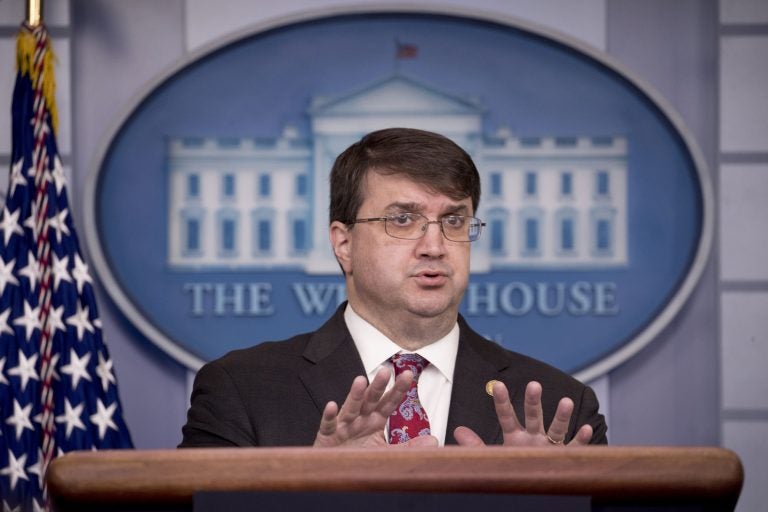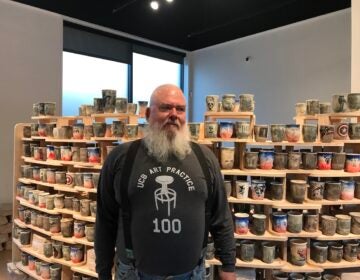To combat suicides, VA secretary calls for modern approach to mental health, starting in service
Secretary Robert Wilkie, on a recent visit to Philly, said it’s important to recognize signs of mental illness while service members are on active duty.

Secretary Robert Wilkie, on a recent visit to Philly, said it’s important to recognize signs of mental illness while service members are on active duty. (Andrew Harnik/AP Photo)
After combat, it’s common for veterans to suffer chronic pain. But now that doctors have a clearer understanding of the risks of addictive painkillers, they are wary of relying on opioids to relieve it. Plus, veterans suffer from addiction at higher rates than the general population.
On a recent trip to Philadelphia, U.S. Secretary of Veterans Affairs Robert Wilkie visited the Cpl. Michael J. Crescenz Outpatient Clinic in West Philly to see how it’s offering non-opioid treatment for those with chronic pain, and how it’s treating veterans with substance use disorder.
“So for people like my father, it would have been anathema to think about acupuncture and tai chi and yoga, but that’s what we’re doing,” said Wilkie, whose father served in the Vietnam War. “The culture is changing, and along with that, people are doing better.”
Veterans suicide remains a huge problem in this country — in 2017, an average of 17 veterans died by suicide each day in the United States. That same year, suicide rates were highest among veteran patients with opioid use disorder.
Wilkie said his department is doing what it can to improve treatment on the back end. But he said the culture change has to start even earlier.
“In my father’s day, the notion that anyone would talk about anxiety, or depression, or the raw emotions that come from the battlefield would’ve been a one-way ticket to a dishonorable discharge and out of the service,” he said.
When there was a draft, mental illness wasn’t taken as seriously, Wilkie said, in part because if someone couldn’t cut it in the field, there were thousands of people who could take his place.
Now, he said, we know better than to think of mental health issues as a sign of weakness, and it’s important for service members to learn and recognize the signs of mental health issues while they’re on active duty. That way, they can be comfortable getting one another help before it’s too late.
“We have to adjust our culture to meet the needs of a modern America,” said Wilkie.
If you or anyone you know is dealing with a serious mental health issue, the 24-hour Veterans Crisis Line is 1-800-273-8255 (press 1).
In addition, the Veterans Affairs website offers links to information about opioid safety and managing chronic pain.
Health care is not just an important issue for veterans, but also for their families. A recent Rand study found that an estimated 5.5 million Americans care for injured or ill service members and veterans. Military caregivers provide $14 billion of uncompensated care each year.
Wilkie said there are 250 families who are given a stipend to care for veterans in Philadelphia. But because of what he described as a statutory oversight, families of Vietnam War veterans were not eligible for compensation.
Starting next year, he said, the statute will be extended to include those families as well.
WHYY is your source for fact-based, in-depth journalism and information. As a nonprofit organization, we rely on financial support from readers like you. Please give today.





